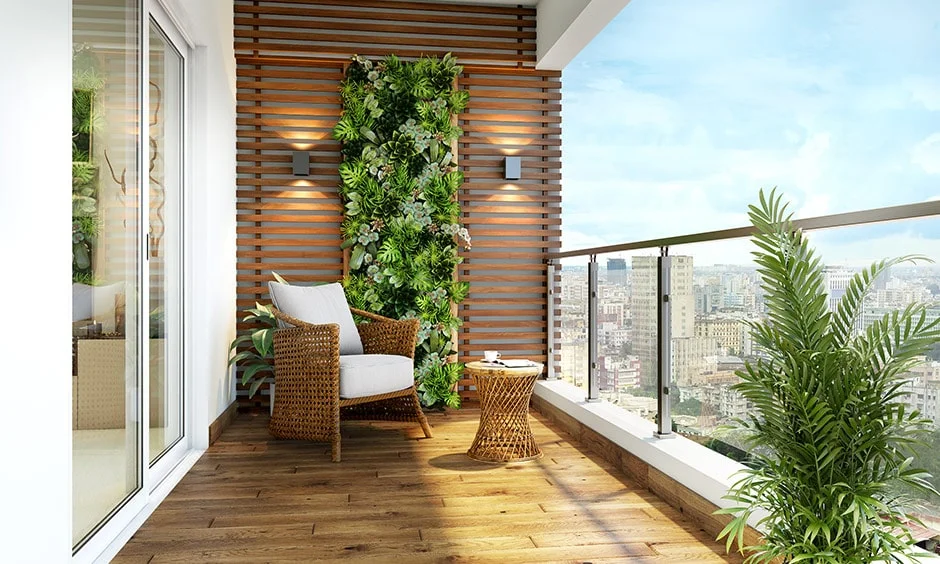When it comes to flooring options, Stone Plastic Composite (SPC) flooring has gained immense popularity for its durability, water resistance, and ease of maintenance. Traditionally used indoors, many homeowners and designers are now wondering: Can SPC flooring be used outdoors?
In this article, we'll explore the feasibility of using SPC flooring in outdoor environments, focusing on its weather resistance, slip resistance, and overall performance.
What Makes SPC Flooring Unique?
SPC flooring is a rigid core flooring product made from a combination of limestone powder, polyvinyl chloride (PVC), and stabilizers. Its multi-layer structure provides exceptional strength, water resistance, and dimensional stability, making it a top choice for high-traffic indoor areas like kitchens, bathrooms, and living rooms. But does this durability translate to outdoor use?
Can SPC Flooring Be Used Outdoors?
While SPC flooring is primarily designed for indoor use, it can be used in certain outdoor applications with proper precautions. However, there are several factors to consider before installing SPC flooring outdoors:
Weather Resistance: Can SPC Flooring Withstand the Elements?
One of the biggest challenges for outdoor flooring is exposure to weather conditions such as rain, UV rays, and temperature fluctuations.
Here's how SPC flooring performs:
Water Resistance: SPC flooring is 100% waterproof, making it an excellent choice for areas prone to moisture, such as patios or covered decks. However, prolonged exposure to standing water or heavy rain can cause issues, especially if water seeps underneath the flooring.
UV Resistance: Direct sunlight can cause fading and discoloration in some flooring materials. While SPC flooring is more UV-resistant than traditional vinyl, it may still fade over time if exposed to intense sunlight. Look for UV-treated SPC flooring for better outdoor performance.
Temperature Tolerance: SPC flooring is highly stable and can withstand moderate temperature changes. However, extreme heat or cold may cause expansion or contraction, leading to gaps or warping. This makes it more suitable for temperate climates rather than regions with harsh winters or scorching summers.
Slip Resistance: Is SPC Flooring Safe for Outdoor Use?
Safety is a critical factor for outdoor flooring, especially in areas that may become wet or slippery. SPC flooring typically has a textured surface that provides some level of slip resistance. However, for optimal safety in outdoor spaces:
Choose SPC flooring with a high slip-resistance rating (R10 or higher).
Consider adding an anti-slip coating or matting in high-risk areas like pool decks or entryways.
Installation Considerations for Outdoor Use
Proper installation is key to ensuring the longevity of SPC flooring in outdoor settings. Here are some tips:
Use a Weatherproof Underlayment: A moisture-resistant underlayment can help protect the flooring from water damage and provide additional insulation.
Ensure Proper Drainage: Make sure the outdoor area has adequate drainage to prevent water from pooling underneath the flooring.
Limit Direct Sunlight Exposure: Install SPC flooring in shaded or partially covered areas to minimize UV damage.

Best Outdoor Applications for SPC Flooring
While SPC flooring may not be ideal for all outdoor environments, it can work well in the following settings:
Covered Patios and Porches: These areas are protected from direct sunlight and heavy rain, making them suitable for SPC flooring.
Balconies: SPC flooring can add a stylish and durable surface to balconies, especially in urban apartments.
Garages: While not fully outdoors, garages benefit from SPC flooring's water resistance and durability.
Pool Decks (with caution): With proper slip-resistant treatments, SPC flooring can be used around pools, but it's essential to ensure proper drainage and UV protection.
Limitations of SPC Flooring for Outdoor Use
Despite its many benefits, SPC flooring has some limitations when used outdoors:
Not Suitable for Fully Exposed Areas: SPC flooring is not designed for fully exposed outdoor spaces like driveways or open gardens.
Potential for Fading: Even with UV treatments, prolonged exposure to sunlight may cause some fading over time.
Risk of Warping in Extreme Conditions: In areas with extreme temperatures, SPC flooring may not perform as well as other outdoor-specific materials like concrete or stone.
Alternatives to SPC Flooring for Outdoor Use
If SPC flooring isn't the best fit for your outdoor project, consider these alternatives:
Porcelain Tiles: Highly durable and weather-resistant, porcelain tiles are a popular choice for outdoor spaces.
Composite Decking: Made from wood fibers and plastic, composite decking is designed specifically for outdoor use.
Natural Stone: Stone flooring offers a timeless look and excellent durability for outdoor areas.
Is SPC Flooring a Viable Option for Outdoors?
SPC flooring can be used in certain outdoor applications, particularly in covered or semi-covered areas like patios, balconies, and garages. Its waterproof and durable nature makes it a strong contender, but it's essential to consider factors like UV exposure, temperature extremes, and slip resistance. For fully exposed outdoor spaces, other materials may be more suitable.
If you're considering SPC flooring for your outdoor project, consult with a flooring expert to ensure it’s the right choice for your specific needs and climate conditions. With proper installation and maintenance, SPC flooring can add style and functionality to your outdoor living spaces.



